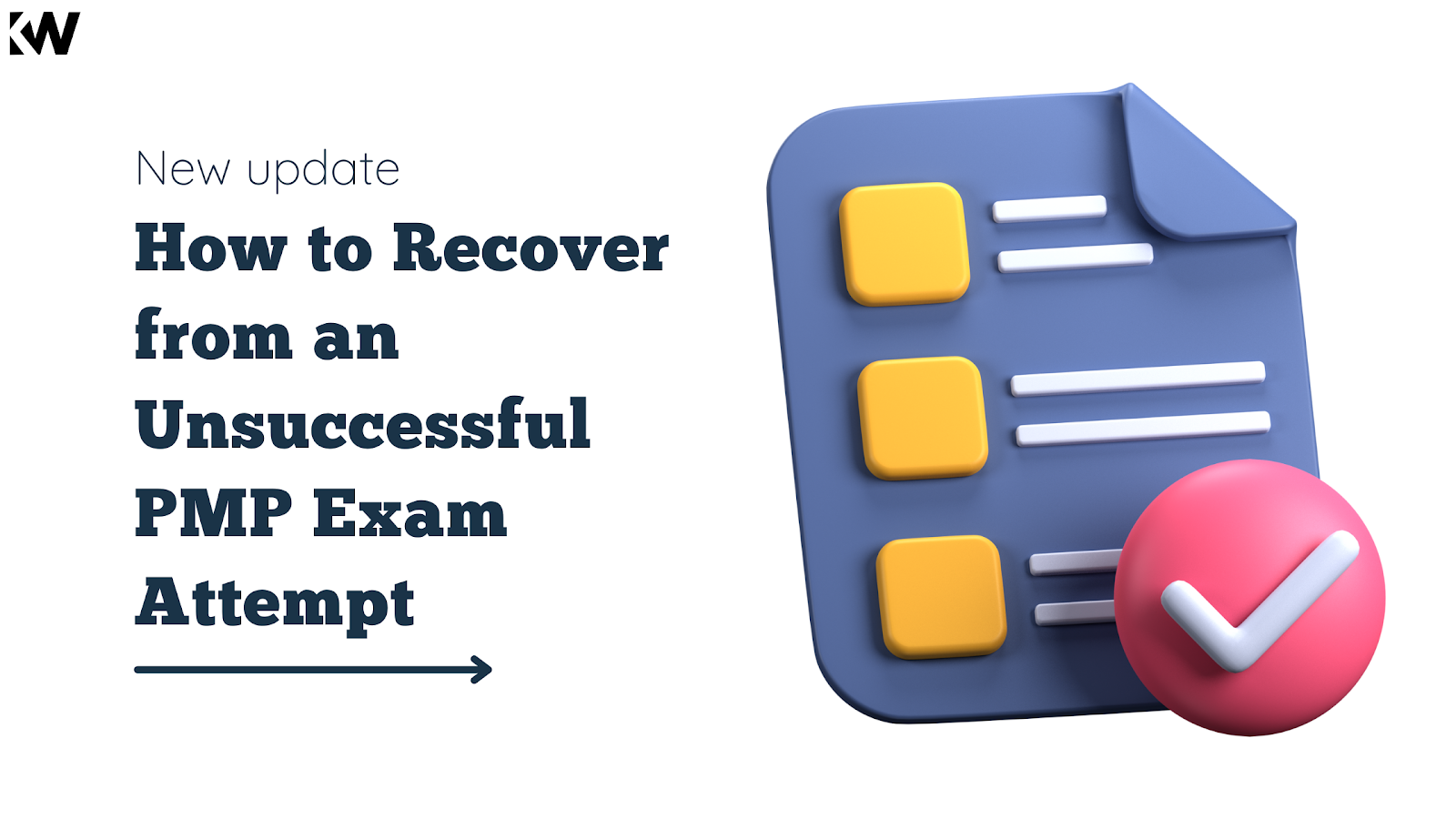So, you have failed the PMP® exam …. What can you do now?
The first thing you should do is remember that you are not alone! It happens all the time. Although we do not necessarily know the exact failure rate, it is a very difficult exam, and you should not be too hard on yourself for failing. With this article, I want to not only help you work through the pain and frustration of having failed the exam, but I will also give you a list of actionable items to work on so that you can successfully prepare for your next attempt.
And we will start by answering the question 'How many people actually fail the exam?'
What is the PMP Exam Failure Rate?
We don't know the PMP exam failure rate.
We have seen articles about this topic where the author claims it’s as high as 50%. However, the fact is that the Project Management Institute (PMI)® does not communicate the failure rate for any of their exams which means we simply do not know and any number given as a “fact” is wrong. What we do know is that a substantial percentage of exam takers will fail the PMP exam. Here is what one author writes:
The passing rate of PMP® Exam is indeed quite low among most professional exams — that makes passing the exam extremely valuable.
So, remember, when you pass the exam the next time around, you will be one of those few individuals who have the PMP behind their name, which is a huge accomplishment in the PMP community.
I Failed The PMP Exam Now What?
The next step would be to make sure you understand your shortfalls. Right after you take the exam, you will be handed a score report. It is extremely important that you understand the results of your fist test. The score report will show you your proficiency levels for each performance domain. The four possible levels which include: needs improvement, below target, target, and above target will help you determine what your strengths and weaknesses are regarding the material.
Once you have determined exactly where your shortfalls are, you can devise a strategy on how to improve in those areas. The next step would be to outline the corresponding PMBOK® Guide sections that are within the needs improvement and below target areas and find as many questions in those areas as you possibly can. Also, there are many software simulation reports that would report questions by project phase, which you can utilize to strengthen your weaker areas of knowledge.
Tip 1: Get A Simulator!
My number one recommendation - especially if you failed PMP twice -- is to sign up for an online PMP exam simulator.
While the online exam simulator might cost you a bit of money, now would be the time to invest the extra dollar in order to make sure you pass the test the next time around. Your current sport is to take the PMP exam and you have to practice, practice, practice. The best way to do this is through the online exam simulator which can give you many practice exams and provides a great review tools after you take the simulation exams.
Tip 2: Read Lessons Learned from Others who Failed
My number two recommendation for you is to read lessons learned from other test takers who did not pass their exam. Start with these:
Lessons learned from those who failed pmp exam first time: Click to read lessons learned...
Lessons learned from those who failed pmp exam second time: Click to read lessons learned...
Lessons learned from those who failed the pmp exam 3 times: Click to read lessons learned...
Further, reading Lessons Learned from other test takers can also give you ideas on how to prepare for the second time. A helpful lessons learned forum can be found at www.pm-precast.com/II. Kelly, who has passed the test on her second try, states to following in the lessons learned forum: “The first time around I paid three times more for live classes and used their exam simulator”. Kelly’s argument is that using the exam simulator is extremely important and sometimes more effective then live classes.
Tip 3: Six Reasons for a Failed PMP
The next step you should take is to take an honest look at what factors outside of the exam room might have caused you not to pass the PMP exam the first time around. Are you a nervous exam taker? Did you not study enough? Is English not your mother tongue? Was there another personal reason that might have contributed to this situation?
To help you identify these causes, go ahead and listen to this great free interview with myself and Kevin Reilly in which we discuss 6 reasons why people fail their exam multiple times:
Tip 4: Understand WHY Your Answers are Wrong
This tip is a follow-up to Tip 1 above: Once you have a good simulator start answering and analyzing sample questions. I want you to spend at least the same amount of time in doing your review as you spend in answering the questions. So if you spend 2 hours on answering questions in the simulator, you have to spend at least 2 hours in doing the review. Look at every question that you got wrong and learn from your mistake. Read the explanations, look at the references, review the PMBOK® Guide, watch The PM PrepCast lesson on the topic, and so on. Don't be satisfied with "oh, I got it wrong". But instead, ask why you got it wrong and do the research.
And of course, you want to do exactly the same type of review with all the questions you answered correctly but you know that you guessed, or where you were not sure. So if you were 'just lucky' and got it right by chance, you need to do an in-depth review as well.
Here's how one of our successful students describes this process:
Tip 5: Ask!
If, at this point, you are still unsure about what might have gone wrong in your exam, or how you should proceed, then don't be shy. Ask!
In Tip 2 above I recommended that you read some of the lessons learned that others have posted in our PMP discussion forum after they first failed and then passed their exam. Did you notice how helpful our community is and how many people helped out with suggestions and tips?
So go ahead and take advantage of this positive environment and ask for help.
One thing to remember when you ask for help is the fact that the more specific your questions are the better. Simply saying "I failed pmp exam 2019. Help. What can I do?" will probably not get you many responses. You have to be more specific and provide details. Tell us how you studied, what study materials you used, what your exam results were and tell us if you already have any plans for preparing your next steps.
Tip 6: Consider Getting Special Accommodations
PMI understand that taking a certification exam can be more stressful for some than for others. So if there is a medical reason why you may need additional time you may request this.
You may request the administration of any PMI examination to be modified due to disability, handicap and/or other conditions that may impair your ability to take the examination. There are no additional costs for test accommodations.
We know from several of our students who are 'nervous test takers' that they obtained a doctor's note and were able to extend the amount of time for the exam.
One student whose mother tongue is not English and for which PMI does not have a language aid was told the following: "PMP candidates for whom we don’t have a language aid in their native tongue can request additional time to complete their exam. This would need to be requested prior to scheduling their exam." She, too, requested additional time and received it.
Important: All special accommodations must be requested prior to scheduling an exam. Please consult the Handbook!
Tip 7: Think Positive
A very important part of your second round preparation is your mental state. Think positive! A great suggestion during the positive thinking phase is to use visualization in order to get in the mood of the actual feeling of passing the test. Sit quietly in a room and close your eyes. Visualize what it will feel like once you pass this extremely difficult exam. Feel that amazing feeling all over your body and visualize you leaving the exam room happy and proud of your accomplishment. And remember, you have tried this exam before so you really have a big chance to pass the second time around. Part of the passing process is attributable to your preparation and part is truly believing that you can pass.
To Know More Tips - Check This Out - How to Recover from an Unsuccessful PMP Exam Attempt











0 Comments